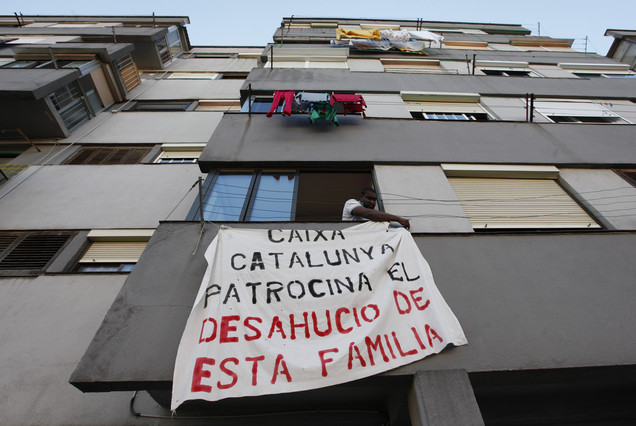Much of the Spanish economy was put on hold today as it joined other European countries in a general strike. In the past few weeks, Spain’s economic crisis has been magnified by an alarming number of evictions taking place across the country, leaving many families homeless and hopeless. Today, support organizations took to the streets of Spain to protect the fundamental right to housing.
It took three eviction-related suicides and the resulting public outcry for the government to address its outdated 100-year-old eviction law, which the European Court in Luxemburg has ruled doesn’t go far enough in protecting consumers. This week the Spanish Banking Association agreed with the government to “stop evictions during the next two years in those cases of extreme need”, though negotiations are ongoing.
But what then? How will affected neighborhoods face the continued crisis? The support platform PAH (Plataforma de Afectados por la Hipoteca)–in english “platform for those affected by mortgage” says for one thing, something has to be done about the 6 million vacant homes across the country, perhaps using the stock to create social housing with affordable rents.
 Our student group in front of the Associació de Veïns de Ciutat Meridiana
Our student group in front of the Associació de Veïns de Ciutat Meridiana
Neighborhoods themselves–especially low-income ones–will also have to find ways of dealing with socio-economic problems and stimulating safe, healthy and resilient environments. During this year’s course, our students will be taking on this challenge first-hand in the Ciutat Meridiana workshop. Together with the community and local officials, students will be identifying intervention topics for the physical and social enhancement of this neighborhood, which ranks the highest eviction rate in the country.



One Comment